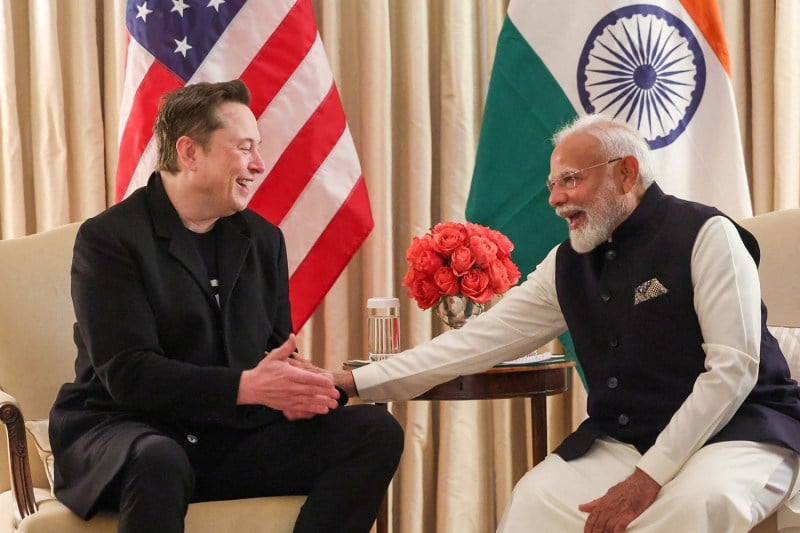India Welcomes Trump’s Tech Allies: Starlink and Coinbase
India, home to the world’s second-largest internet user base, is opening its doors to major technology companies with strong ties to former U.S. President Donald Trump. This move could signal a significant shift in the country’s tech landscape.

Starlink, the satellite internet provider spearheaded by Elon Musk, and Coinbase, a leading cryptocurrency exchange, have recently secured key footholds in India. The timing of these developments, coinciding with Trump’s return to the political stage, has raised questions about the influence of political alignment on business decisions.
Starlink has faced setbacks, including contract cancellations in Canada and growing competition in Europe. However, the company received a major boost in India with partnerships announced by Bharti Airtel and Reliance Jio, India’s two largest telecom providers. These agreements will grant hundreds of millions of customers access to Starlink’s high-speed internet services.
This represents a breakthrough for Starlink and its parent company SpaceX, which have been trying to establish operations in India for years, facing resistance from telecom companies and government regulations. The deals are conditional, pending SpaceX receiving the necessary authorizations to sell Starlink in India.
India’s vast internet user base is a significant draw for Starlink. With over 971 million users, the country represents nearly three-quarters of the world’s most significant population and stands second only to China. The Indian government’s openness to Starlink may also have political motivations, potentially as a counterbalance to China’s satellite internet program and a desire for a more compliant partner.
Aditya Ramanathan, a research fellow at the Takshashila Institution, suggests the Indian government would favour the use of satellite internet operated by Indian firms or those of friendly nations. Moreover, Elon Musk’s close relationship with Trump is likely an important factor. Musk has donated heavily to Trump’s campaigns and is now a significant figure in his administration. Indian Prime Minister Narendra Modi also met Musk and discussed “space, mobility, technology, and innovation.”
Coinbase also made significant strides in India, receiving approval from the Financial Intelligence Unit to begin operations in the country. This allows the company to offer cryptocurrency trading services in India. The crypto industry has experienced regulatory uncertainty, including a ban on cryptocurrency trading in 2018 which was later reversed, and a 30 percent tax on crypto profits.
Coinbase had previously begun operations in India in 2022, but was forced to cease them within a week due to pressure from the central bank and digital payments regulator. The recent shift in the attitude towards the crypto industry may stem from Trump’s support, who has hosted a crypto summit at the White House, which may be a significant influence on India’s regulatory stance.
“It’s quite obvious that these moves are influenced by political considerations, by attempts to manage the India-U.S. relationship and make sure we don’t have major trade disputes,” Ramanathan said.
These developments highlight the growing intersection of politics and technology, and how alignments with key political figures can influence business opportunities in a globalized world.


